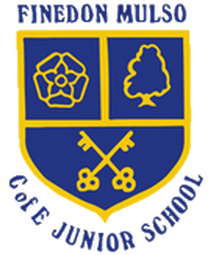English
At INIS we are passionate about English, as we believe it lies at the heart of the curriculum. Using quality texts, children are encouraged to develop a love of reading and writing, as well as learn the oracy skills they need to communicate effectively. These skills are applied across all subject areas.
Reading
All our children have access to a high-quality reading curriculum where reading is valued and books are celebrated. Children are encouraged to develop a love of reading because we believe that reading for pleasure is key to educational success and open doors for children; equipping them with the skills, vocabulary and understanding of language needed to achieve well in all curriculum areas. We want our children to understand the value of reading in order to develop a life long love of reading.
At INIS we teach reading through specific reading sessions, both whole class and through guided reading sessions in Reception and KS1. We teach specific reading skills using our ‘reading toolkit’, drawing on the research of Tony Whatmuff and Christopher Such to deliver a high quality curriculum. Please see more information here: Reading Toolkit
Click here for more information on Reading
Phonics
Phonics is a way of teaching children how to read and write. It helps them hear, identify and use different sounds that distinguish one word from another in the English language. It involves matching the sounds of spoken English with individual letters or groups of letters.
There is a weight of evidence that systematic synthetic phonics, taught in the first years of a child’s education, gives children the key building blocks they need to understand words. This underpins children’s successful progress in reading and can inspire a lifetime love of books.
As they learn phonics children apply their skills through reading books that they are able to decode. Children who learn using synthetic phonics are able to tackle new words working from sound alone. The books children read at home and at school are from the Oxford Reading Tree publisher and matched to our phonic programme.
At INIS we use Essential Letters and Sounds to deliver phonics teaching. This is a rigorous programme that builds on from Phase One aspects, in nursery, from Letters and Sounds. Children build their ability to read and write over time, developing their fluency skills at each stage. Once children are confident with the content of the Essential Letters and Sounds programme they move on to learning the spelling patterns stated in the National Curriculum.
Writing
At INIS, we teach writing through the Talk for Writing approach which stresses the importance of talk prior to writing. In addition, it allows explicit modelling, scaffolding, rehearsal and drama techniques to be used in teaching and includes writing for a range of purposes. This process enables children to imitate the language they need for a particular topic orally, before reading and analysing it, and then writing their own, independent version.
Storytelling and purpose for writing is key to our writing programme. This begins in Nursery where children develop their storytelling through ‘Helicopter stories’ to develop their oral storytelling skills.
We recognise the role that ‘talk’ plays in developing understanding of the written word, and the ‘Talk for Writing,’ model regularly gives children the opportunities to listen to and retell stories and non-fiction texts. Children are taught the skills needed to successfully write in the genre being taught and use these skills in their own work to think like a writer.
Handwriting is taught throughout the school following the Kinetic Letters programme, which builds from nursery developing the body strength needed to write, then moving to forming letters clearly and correctly.
Grammar and spelling are integrated into our teaching of writing as well as through discrete lessons.
Click here for more information on Writing
Oracy
Oracy is the ability to communicate effectively, speaking clearly and grammatically correctly. We aim for our classrooms to be rich in talk, in which questions are planned, peer conversations are modelled and scaffolded and teachers use talk to develop thinking.







